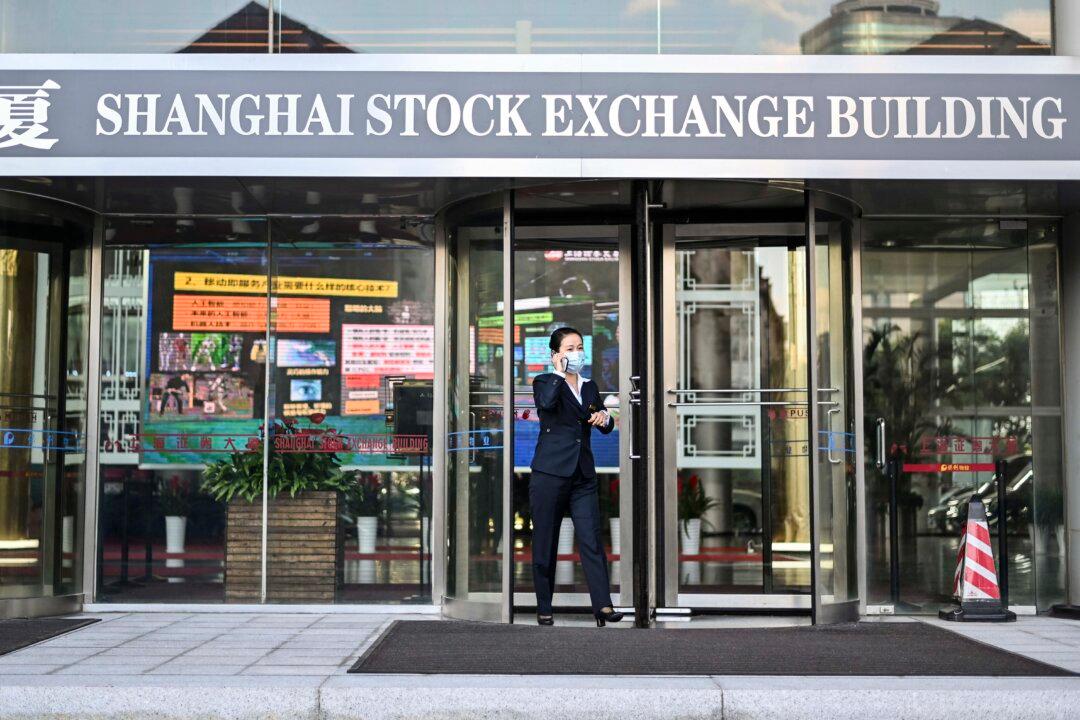Commentary
China’s financial sector is in crisis. The Chinese Communist Party (CCP) is, well, communist. And it’s again flexing its muscles against its own “capitalist class” in ways that proper capitalists should have foreseen if they could see past their noses (aka next financial quarters). But they generally can’t. After investing trillions of dollars into China over the past few years, they now feel “the squeeze,” as my dear departed grandpa would say.
Only this month, the squeeze is not for a dime or nickel but for more than $100 billion in U.S. private equity (PE) investments, which the CCP effectively won’t let them repatriate. That’s just the captured capital of the top 10 global PE companies: Advent International, Apollo, Bain Capital, Blackstone, Carlyle Group, CVC, EQT, KKR, TPG, and Warburg Pincus. Much of this money represents the savings of regular people through their pensions or the security they purchase via insurance. Their pensions will likely pay out less, and their insurance premiums will increase as a result.
Now that China’s economy is slowing and both Democrats and Republicans support more trade war, the PE companies are desperate to sell their privately held companies in the Middle Kingdom, either to other private investors via a merger or acquisition deal or by offering them to the public through initial public offerings (IPOs).
However, China’s regulators are not cooperating, and private investors are wisely not biting. The CCP won’t greenlight the IPOs, which throws PE revenue strategies of selling after five years into chaos. The top 10 PE companies have apparently not fully sold a single company in 2024, which is a first since the CCP overregulated public listings in 2021. In market democracies, regulations are less stringent. Private buyers are not constrained by their close relations with the CCP, which is likely pressuring them against buying from Westerners in part to prop up China’s embarrassingly saggy stock market.
After investing $137 billion in China over the past decade, the 10 PE companies are now probably realizing that China is uninvestable. A JP Morgan report stated as much about Chinese internet companies in 2022. That was before the bank backpedaled in the context of outrage in Beijing. Arguably, the more outraged the CCP gets, the truer its target. Since then, the top 10 have only invested about $5 billion in China. The sell signal from the world’s most sophisticated institutional investors says it all.
The CCP is making it harder for its domestic Chinese bankers, too. They are part of a $66 trillion financial sector that needs the best of the best to help guide it to long-term profitability. But in September 2024, the regime detained at least three more of its own leading bankers in the context of an anti-corruption drive. Others got death sentences and life imprisonment. Regulators pressured state-owned brokers to force junior staff to hand in passports. Many senior staff had already handed theirs in. That sort of maneuver anywhere else would be called “slavery.”
In communist China, it is starting to look like normal living for bankers, albeit in a golden cage. Since June, financial sector salaries have been capped at $400,000, which is too little to make such cages look any more attractive and way too little for bankers with the skills to make far more abroad. Their bonuses are being clawed back to comply. Onshore pay cuts for bankers at China International Capital Corp., for example, were as high as 25 percent recently.
It all seems penny wise and pound foolish, but the regime is apparently too ideological to care. Chinese leader Xi Jinping recently called for investment bank consolidations in China, and sure enough, it is happening. Yet annual onshore IPOs have fallen by 88 percent by value since a high in 2022. Since mid-2018, the financial sector in China has lost about a third of its employees. Bankers are voting with their feet.
Meanwhile, India’s financial sector has soared as global capital and local investors look beyond China for emerging markets. In 2024, India took second place from China after the United States in IPO value. A booming stock market in India is also fueling record IPOs there. Companies want to sell while the market is hot.
The shift away from the CCP’s China is historic and bodes well for democracies but not for communism.





